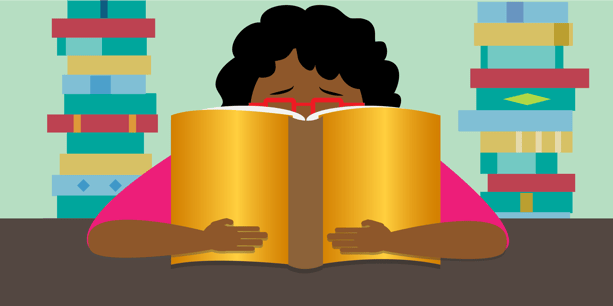
There is a popular misconception outside the legal industry that paints lawyering as a cycle of exciting, high-profile litigations, sprinkled with press conferences and grandiose, awe-inspiring statements to the jury. Of course, those of us who know better - well, we don’t mind because that’s a pretty badass career profile. But we also know that nitty gritty behind-the-scenes work is essential to producing those moments of glory.
The reality is this: if lawyering is a cycle of anything, it’s reading. Between law school and law practice, you’re an anomaly if you’ve read anything less than your body weight in printed pages - and when you finish one stack, there’s always another one waiting. Getting through this seemingly endless reading queue can be challenging, exhausting, and consuming. Luckily, there are a number of strategies and tools you can implement to help you read quickly and maximize content retention.
Before Reading
First things first: remove all environmental obstacles and distractions. Think comprehensively, as even a minimal change (like reading in glasses rather than contact lenses) can impact your speed and focus. Make sure you have proper lighting - the more you strain your eyes, the less energy you’re spending on absorbing the material. Next, analyze what you’re reading: decide whether it’s appropriate to skim or requires active participation, based on its context, relevance, and writing style. Read the introduction (or abstract) and conclusion first, and identify key questions and topics that you’ll need to pay attention to as you read.
While Reading
As you read, use a pointer to track your exact location on the page and eliminate distractions from peripheral words and phrases. If you’re an impatient reader like I am, use an index card to underscore each line you read and prevent yourself from jumping forward into the text (and then having to re-read what you missed). Alternatively, if you tend to be a slower reader, use a fine-tip pointer like a pen or a bookmark to set your pace. Your eyes will gravitate towards the pointer, and its movement will dictate your new reading speed.
Make an effort to resist subvocalization, which is the tendency to enunciate, mouth, or mentally vocalize each word as you read it. Although subvocalization is conducive to rote memorization, it limits your reading speed and attaches your interest to individual words rather than phrases and concepts. If you find that this a tough habit for you to break, chew gum to keep your mouth occupied while you read, and train your mind to avoid focusing on individual words.
Many reading coaches, teaches, and even college professors encourage their students to skim lengthy writings by reading only the first and last sentence of every paragraph. Speaking from personal experience, this tactic does not work for everyone - I tend to get overwhelmed trying to find the punctuation surrounding each sentence, and my pace slows down tremendously. Legalese complicates things even further - you wish statutes and mandates could be distilled that easily. Instead, filter your reading based on the keywords, questions, and important phrases you identified in your preliminary screening of the material. If you’re reading via Kindle or another e-book format, you can use Search tools to jump between these sections and skim briefly through the surrounding content.
Whether you’re skimming or speed-reading, efficient annotation is critical to concept retention. Don’t avoid annotation because it sounds slow and tedious - just learn how to annotate like a lawyer, and not like a high school English teacher. Use different colored pens, post-its, or highlighters to differentiate between types of labels, and leave your marks sparingly. Scribble notes to yourself - even if they’re illegible, the act of writing alone will help reinforce whatever concept you’re focused on. If you’re worried about missing important passages as you skim, use your notes to find out if rereading is even necessary. Often, you’ll find that your notes will bridge gaps between major concepts - allowing you to fill in the rest through logical inference.
After Reading
Once you feel your eyelids drooping and your focus wavering, allow yourself some rest. Resist the urge to push through your tiredness - you’re likely to be sluggish, ineffective, and unable to retain information. If you absolutely must continue, try finding an audio version of your reading material or use an online conversion tool to turn your PDFs and documents into audio files. At the end of each reading session, recap what you've covered - especially if it's from multiple sources. Try to do this excusively by browsing through your notes, and don't revisit the text unless it's necessary.
From one heavy reader to another, I truly hope these tips help you to become more effective and expedient. If you have any advice you'd like to share that I didn't cover, please leave a comment below!

Leave a Reply